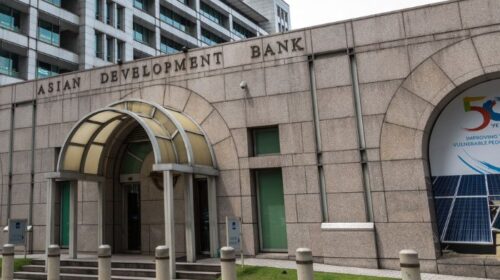The Asian Development Bank (ADB) has approved a $300 million loan to further develop Pakistan’s capital markets, promote private investment in the country, and help to mobilise domestic resources to finance sustainable growth.
The second subprogramme of ADB’s Third Capital Market Development Programme builds on institutional and regulatory reforms put in place under the first subprogramme approved in 2020. It aims to catalyse institutional investor demand and increase the range of alternative financial instruments such as derivatives and commodity futures that are available to investors.
Federal Minister for Economic Affairs Omar Ayub Khan has appreciated approval of $300 million by the ADB under Capital Market Development Programme (SP-2). This programme aims to support demand and supply measures to broaden and deepen the financial system in Pakistan with strong legal and regulatory framework. It will help mobilise financial resources for productive investment, especially by private sector, and facilitate economic growth by developing the bond and equity capital markets. It will also help to improve forex reserves and stabilise exchange rate.
The ADB had already disbursed $1.1 billion to Pakistan in current fiscal year, whereas seven new projects amounting to $2 billion have been signed. At present, 37 ADB-Funded development projects worth $7.9 billion are under implementation across the country in energy, road and transport, agriculture, urban infrastructure and social sector. ADB has provided over $1.3 billion for COVID-19 response including social protection, vaccination and budgetary support for fiscal stimulus.
“For several years, ADB has been Pakistan’s lead development partner in supporting the evolution of its capital markets,” said ADB Director General for Central and West Asia Yevgeniy Zhukov. “By making the country’s capital markets more robust and strengthening government debt management, this new programme will also help to mobilise more domestic resources which support the government’s efforts to finance sustainable growth and respond effectively to crises.”
Pakistan’s finance sector is dominated by banks and this lack of diversification increases the risk of the country not being able to withstand financial shocks and periods of uncertainty. Moreover, the Pakistan Stock Exchange lacks depth in terms of the number of investors which access it and the number of companies raising capital, while Pakistan’s bond market is almost completely dominated by government borrowing.
ADB’s programme supports policy actions that will strengthen market stability and attract investor capital to Pakistan. These include structural reforms within the Securities and Exchange Commission of Pakistan (SECP) that will improve governance and regulatory capacity. It supports measures that will strengthen the government debt market and enhance market surveillance systems that facilitate information exchange. The programme also promotes an enabling environment to expedite access to financing for growth companies and state-owned enterprises.
“These reforms will help to mobilise financial resources for productive investment, especially by the private sector, and help facilitate economic growth by developing the bond and equity capital markets,” said ADB Economist Sana Masood. “This will help reduce the cost of financial intermediation and help stabilise systemic vulnerabilities in the bank-dominated finance system.”
ADB Approves $300 Million Loan To Develop Pakistan’s Capital Markets





